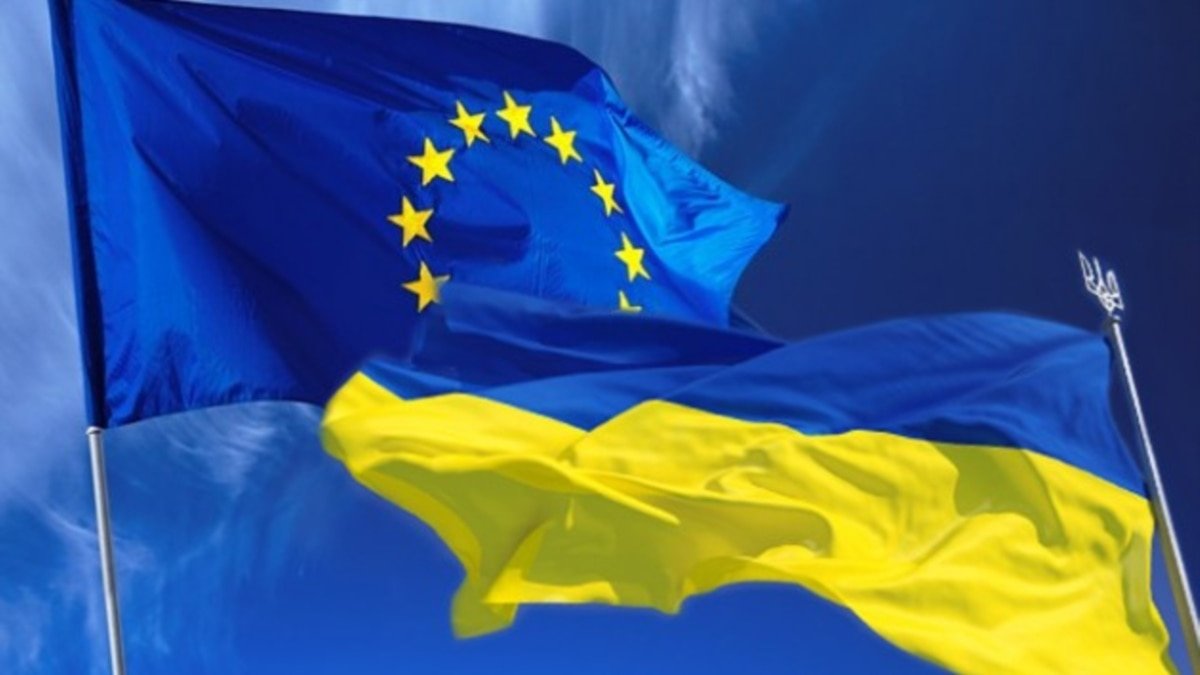On June 23, 2022 - 4 months after the Russian invasion of Ukraine in February - the European Union granted Ukraine Candidate Status. The leaders of the 27 nations of the European Union voted with the required unanimous approval to give Ukraine Candidate Status. Should Ukraine attain full membership, the main benefits are economic since it gives access to a market of 450 million consumers with free movement of labor, goods, services and capital.
President Volodymyr Zelensky wrote on social media, "Ukraine's future is within the EU." "It's a victory. We have been waiting for 120 days and 30 years."
Giving Ukraine Candidate Status to the European Union is clearly a consequence of the War. Ukraine applied for membership less than a week after Putin invaded and the decision came unusually quickly. The War lent an urgency to Ukraine’s application.
It is useful to look back to see how Ukraine got to this point. In 2014 the question of whether Ukraine saw itself as European or as part of the Russian sphere of influence became settled. Then President Yanukovych had promised the electorate in 2010 that he would sign a popular agreement that would bring Ukraine closer to EU standards of rule of law and government. In return the EU would provide financial support to Ukraine and give Ukraine access to EU markets. But in 2013 Yanukovych said he had changed his mind and he rejected the EU agreement and instead chose to pursue closer economic ties with Russia. Why Yanukovych changed his mind is up for debate (see the Reuters 2013 article), but the question is now moot because we now know that Yanukovych’s change of mind nearly led to civil war and ultimately led to the President’s exile.
Yanukovych’s pro-Russian decision led to massive public protests and the occupation of Kyiv's Maidan Square in November 2013. After two months of non-stop protests, Yanukovych sent armed troops who ultimately killed 130 civilians. The people were outraged and continued to protest. On February 21, 2014, Yanukovych was forced to escape to Russia and was subsequently removed from office by the Ukrainian Parliament (Verkhovna Rada).
In 2019 - 5 years after the Maidan Square Protests, Ukraine amended the 1996 Constitution making it clear that the people no longer wanted to be aligned with Russia and saw Ukraine as a part of Europe. The 2019 amendment of the Preamble to the Constitution confirmed the: ‘European identity of the Ukrainian people and the irreversibility of Ukraine’s European and Euro-Atlantic course.’
It has taken Ukrainian 30 years of independence from the Soviet Union to finally settle on which side of the globe Ukrainians want to claim as home. Not Russia, but Europe. Now Ukrainians want to become members of the European Union, which would be substantive proof that Ukraine is a European state holding European values. Admittedly many eastern Ukrainians up until 4 months ago may have felt more of a connection to their neighbor, but today most Ukrainians are feeling anti-Russian, and appreciative of European military and humanitarian support.
Now that the Ukrainians know which side of the globe they want to sit, they need to complete two colossal jobs: 1. Win the War. and 2. Europeanize Ukraine.
If you think I know how to win the war, I have a bridge in Brooklyn that I can also sell you. (Old American joke.)
However, an important factor in Europeanization of Ukraine is a commitment to reforming the judicial system.
Unfortunately, what I wrote 22 years ago is true today: Expectations that Ukraine would smoothly morph from its former authoritarian Soviet State to a state based on the rule of law have gone unfulfilled. In 1998, Leonid Milishchuk, Head Judge of the Lutsk City court said, ‘There is no Ukrainian legal system; there is only the Soviet legal system. The law has not changed. Absoliutno! It is just like it was in Soviet times.’ Although some legal and judicial reform legislation has passed the Verkhovna Rada (the Ukrainian Parliament), it is, as yet, difficult to discern much change in the Ukrainian judicial system.
Without a healthy independent court system neither foreign investors nor the European Union will perceive Ukraine as a serious partner. The European Union will want assurances that Ukrainian courts have the power and respect that will enable them to enforce and protect the environmental and economic dictates of the EC’s Community laws. Parochial methods of enforcement outside the law will not be trusted.
It is no surprise that simultaneously with the recommendation to approve the Candidate Status, Brussels demanded reforms in Kyiv, including reform of the Constitutional Court and judicial reform. European officials have said that Ukraine has already adopted about 70% of the EU rules and standards. However, Belgium Prime Minister Alexander De Croo said, "Considerable efforts will be needed, especially in the fight against corruption and the establishment of an effective rule of law. But I am convinced that it is precisely the (postwar) reconstruction of Ukraine that will provide opportunities to take important steps forward."
